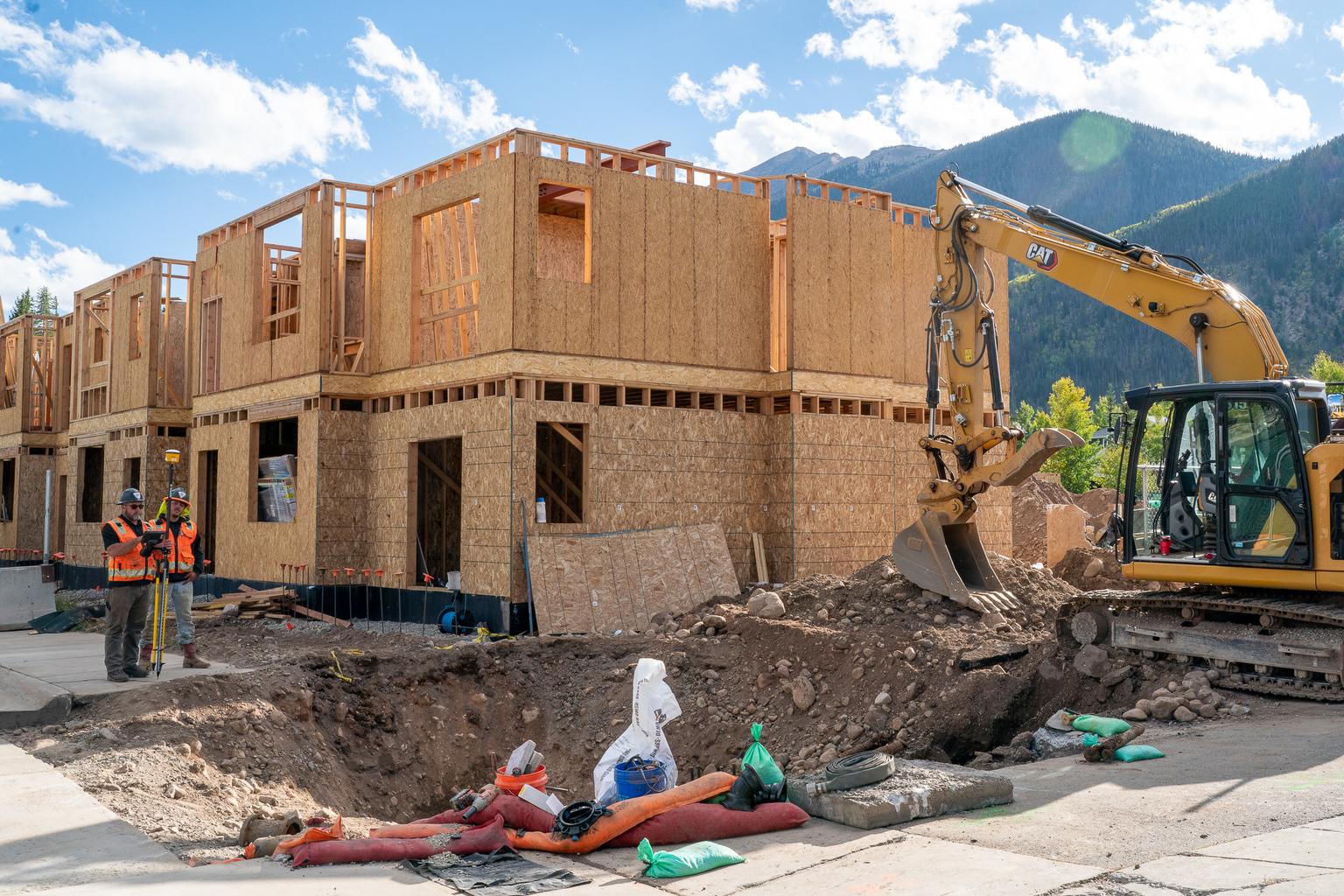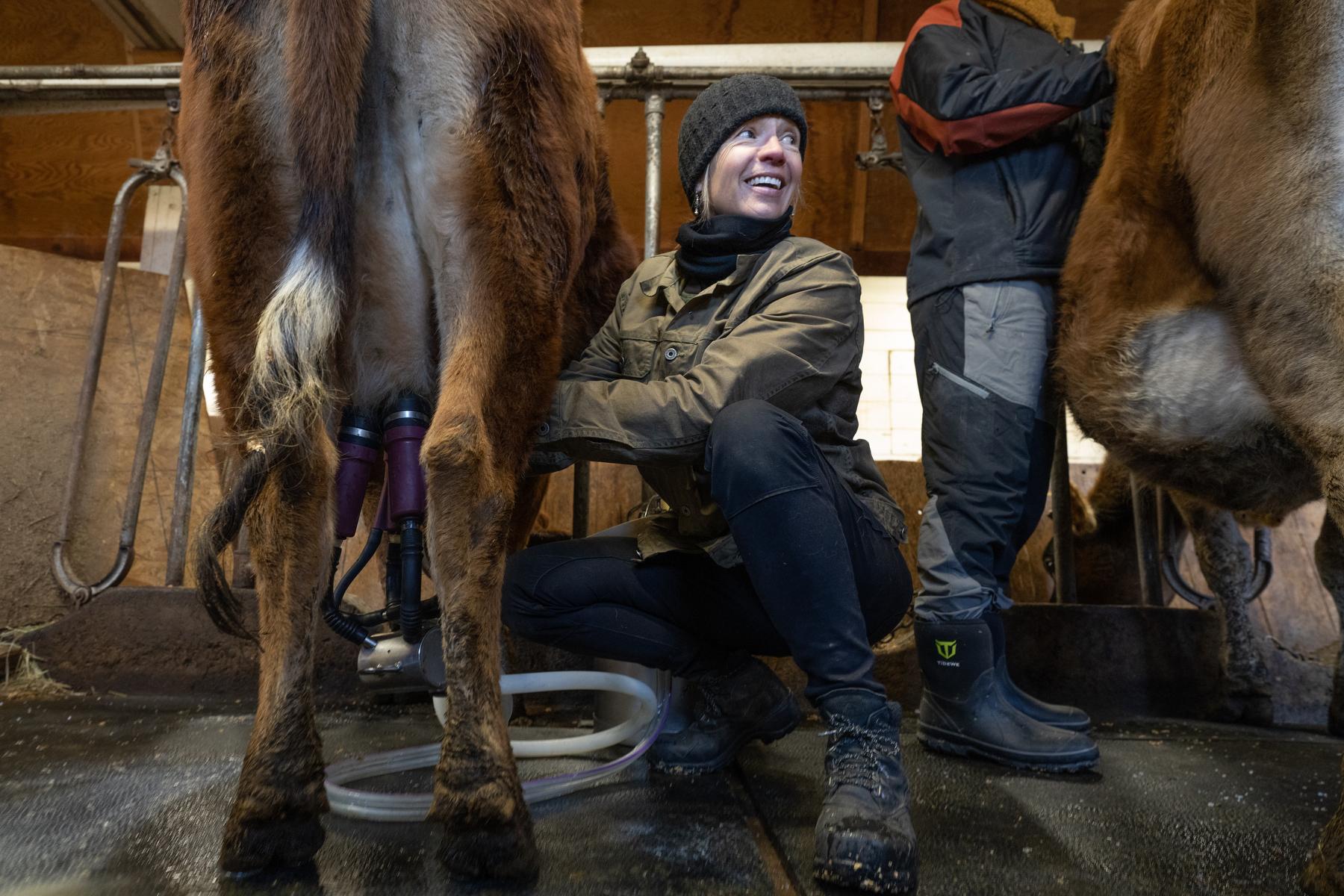
It’s the cold that Dave Repsher remembers most, right before his body was engulfed in flames.
“It was like someone dumped a 5-gallon bucket of cold liquid right across my shoulders. And it turns out it was jet fuel,” Repsher said. “That was what my first recollection was. And then, it was just fire.”
Repsher, a flight nurse, was burned over 90 percent of his body three years ago when the medical helicopter he was riding in crashed shortly after takeoff from St. Anthony Summit Medical Center in Frisco. Within hours, doctors told his wife Amanda there was virtually no chance he would survive.
He walked out of the hospital 13 months later. That’s “397 days,” Amanda said. “Eleven months in the burn ICU and two months on the (burn) rehab unit."
The couple now lives in an apartment near the University of Colorado Hospital, where Dave has returned often for follow-up care.
Soon, though, they’ll start a new chapter. The couple is about to move back to their beloved mountain home in Silverthorne and return to some of the outdoor activities, like hiking, that helped define their lives before the accident.
It will be, they say, their first chance to recapture some normalcy, some sense of routine, since their lives were turned upside down on July 3, 2015.
In the interim there have been highs, like the friends in Silverthorne who kept the couple’s dog, Turq, for the first year, and the community members who volunteered to walk him.
“Sometimes Turq got three walks a day,” Amanda Repsher said, with the big yellow dog nestled at her side as she and Dave spoke in the living room of their apartment.
There have also been lows.

'Tell Amanda I Love Her'
Dave remembers very little of the crash, but he was awake enough in the ER to coach his nursing colleagues, telling them they needed to insert a breathing tube because he’d inhaled so much smoke.
“And they were really having a hard time finding access for medication on me because I was so badly burned,” he recalled. “And when they finally did, that’s when I looked up at (a member of the medical staff) and said, ‘Tell Amanda I love her.’ And then it was just black.”
Amanda, also a nurse, was home on vacation that day. When she got word of the crash, she jumped into a car and battled holiday traffic to get to the medical center.
“I got into Dave’s room and I took one look at him. And I knew. He was so badly burned,” she said.
Then she watched, terrified, as Dave was loaded onto another helicopter, this time to be flown to the burn center in Denver.
“The winds had started blowing and the rain was starting,” Amanda said. “And I knew if he wasn’t in a helicopter and he didn’t get to the burn center as fast as he could, he wasn’t going to make it.”
Once Dave was back in the air, she checked on the other flight nurse who’d been injured in the crash, Matt Bowe. He was conscious and she was reassured. But then she was told the pilot, Patrick Mahany Jr., had died. She entered Mahany’s room, where she and his widow, Karen, cried together.
“She said, ‘Amanda, I don’t know how I’m going to make it without him,’ and I said, ‘I know,’” she said. “And the whole time I thought ‘that’s going to be me.’”
Amanda says she walked out of the room and collapsed onto a hospital gurney. That’s where the staffer who’d spoken to Dave earlier found her. He told Amanda what Dave said before he put under, that he loved her.
“And those words were very powerful. I hung onto them for a long, long time,” she said.

A Negative Chance Of Survival
When Amanda arrived at the hospital in Denver, Dave was alive but the doctors’ prognosis was grim.
“There’s a formula that the burn team uses to calculate survivability when you first come in. It’s based on your age, the extent of the burn, and complications that you face,” Amanda said.
“They told me it was a negative chance of survival.”
But, the doctors told Amanda, because Dave was incredibly physically fit, and surrounded by so much love, they’d up that to a 10 percent chance.
“And we didn’t find out until later, in his medical record, that it was actually a 140 percent mortality rate,” she said.
For five-and-a-half months, Dave hovered between life and death, so sedated that he doesn’t remember anything.
Amanda was with him constantly, consulting with the doctors and sometimes warning them that Dave was taking a turn for the worse before anybody else picked up on the symptoms.
“I was kind of the canary in the coal mine,” she said.
Even after Dave regained awareness he fought fierce infections that provoked hallucinations. He thought he was flying in foreign countries, taking care of patients. One day, he imagined there was a Subway sandwich shop in his room. The hallucinations took over all of his senses.
“It was every sensation, every look, feel, smell. Everything about those hallucinations was 100 percent real to me at that time,” he said.
Amanda talked to him, reminding him where he was to calm him down and bring him back to reality. But whenever she returned to the apartment to eat or rest, the nurses struggled to ease his agitation. Often, they had to call her back to the hospital. Finally, Amanda got a thin, palm-sized recorder and taped a message for her husband.
"Hi Dave. It's Amanda. You're at University Hospital in the burn intensive care unit. I'm over at the apartment, just five minutes away. And I'll be back to see you again in just a little bit."
Most of the time, it worked.

After The Hospital, A Transplant, A Lawsuit And A Future
As the two recount their ordeal, they often complete each others’ sentences, occasionally sparring over the details: Did he fall under the care of 42 medical specialties, or was it 43?
“I would joke with people in the hospital and say, ‘I know there’s one we’re never going to hit. That’s OB! We’re not going to see OB!’” Amanda said.
The powerful antibiotics Dave had taken to fight infection had ruined his kidneys. When he left the hospital and moved into the apartment, Amanda administered dialysis several hours a day, several days a week.
“It keeps you alive, but you’re certainly not living,” Dave said.
Last August, a breakthrough happened—a family acquaintance named Matt Martinez heard of Repsher’s plight and donated a kidney for transplant.
“My health is better, dramatically better. My stamina is better. I can be out in the heat. I can sweat. I can drink. I can eat,” Dave said.
“It was a game-changer,” Amanda added.
Through it all, the Repshers kept track of the investigation into the crash, and pursued a massive lawsuit with the maker of the helicopter, Airbus, and its operator, Air Methods. The National Transportation Safety Board ruled the damage and destruction caused by the crash were due partly to the lack of a crash-resistant fuel system and seats.
“I think (the fuel tank) was 11 millimeters thick. And it’s just plastic,” Dave said. “The word I’ve used is disappointment. You know, the people buying and developing those helicopters, it’s just disappointing that they knew it was out there. Ours wasn’t the first crash.”
The Repshers won a $100 million settlement from the two companies. Much of the money will go toward his medical expenses, which total $20 million already, with tens of millions more predicted through his lifetime. The couple has also set up a foundation with several goals, including helping other burn patients and encouraging organ donation.
Last winter, Dave went to the legislature to testify for a bill that provides paid time off to living donors who donate a kidney or part of their liver. Gov. John Hickenlooper signed the measure in March. And the foundation will continue working to improve flight safety.
“Our biggest hope, going forward, was that even if one person, and that’s it, if just one person in the future can walk away from something like this, then it will all be worth it. We hope it would be more than that,” Dave said.
The Repshers are returning to a community that has never ceased to support them, Amanda said.
“We were at the Fourth of July parade in Frisco and a woman that we didn’t recognize came up and just had tears in her eyes and said, Can I hug you both? And she gave us both a hug. And she’s like, ‘I pray for you both every day. And you're just amazing,’” Amanda said.
“And, I mean, what do you do with that except share and pay it forward and just do what you can to help others?









